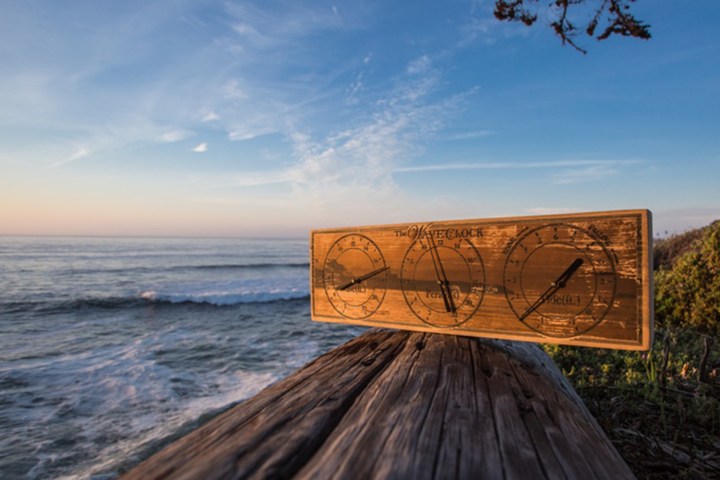
Tides are actually no mystery: It’s about gravity. Thousands of years ago, an old Greek astronomer figured that the moon played a big part. Now, kids learn about it in elementary school.
But O’Reilly’s awe is not lost on us. We get it, the ocean is massive and magnificent. We know less about its depths than we do about the lunar surface and things like rogue waves still have scientists knocking their heads together. But tides? Well, tides are like magnets — blamed on magic by people who did not do their homework.
Craig Jones knows a thing or two about the ocean. He spent his childhood sailing with his dad, an engineer with a fondness for nautical gadgets. Now, as an environmental engineer himself, Jones has decided to combine his love of the sea with the maritime themes of his childhood. He designed the WaveClock, an analog display for real-time ocean data, and recently launched a campaign for its support on Kickstarter.
“As a kid … I was fascinated by the brass weather stations showing barometric pressure, temperature, and humidity,” Jones told Digital Trends. “A few years back, I realized we ocean enthusiasts really need similar information on the ocean waves and tides. The birth of the WaveClock soon followed.”
The WaveClock’s three faces depict wave height, wave period, and the rising or falling of the tide. The device — which accesses the database of the National Oceanic Administration Association (NOAA) to display data from any NOAA station — updates every half an hour and is quickly configured with a smartphone app using BlinkUp.

Jones says the display is fairly accurate — within half a foot and half a second — but that he and his team are trying to improve. “While the actual [NOAA] data is much more accurate, the setup of the device leaves very small errors in hand position,” he said. “In this Kickstarter we are going to find a better way to calibrate the stepper motors to display the most accurate data.” So the WaveClock isn’t yet pinpoint accurate — it’s more decorative than purely functional.
Jones has teamed up with Santa Cruz, California, creatives to give the WaveClock a bit more flare as well with scenic photos on the face. But the WaveClock isn’t cheap. Backers can claim one now for between $169 and $250.


